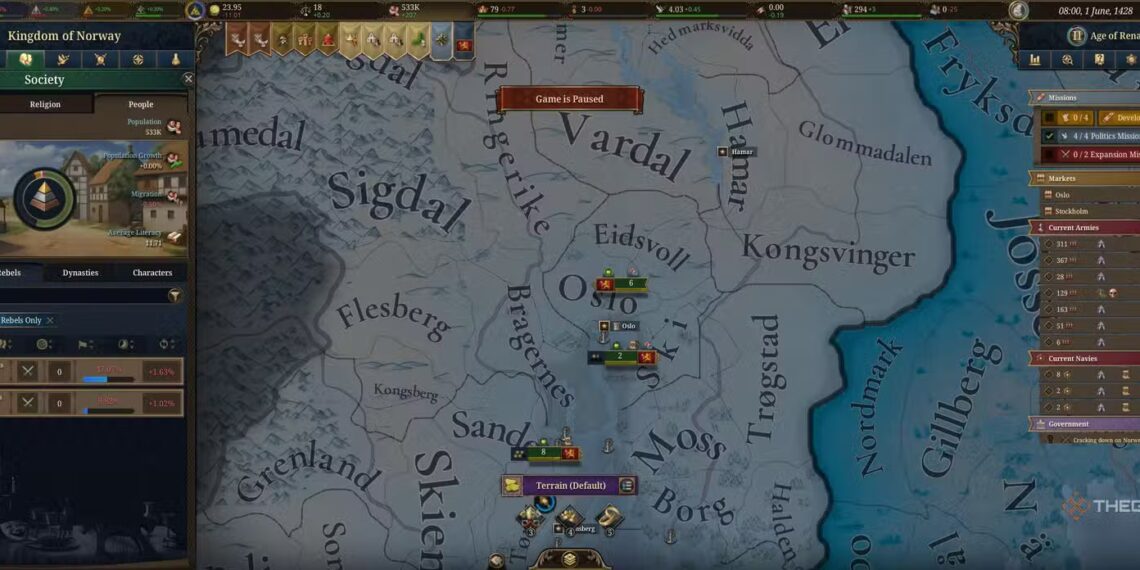Select Language:
In Europa Universalis 5, internal stability is often more delicate and complicated than external threats. Rebels aren’t just minor nuisances anymore; they are real challenges caused by Pops, Estates, and Control mechanics.
Disorderly citizens—whether they are nobles seeking independence, religious fanatics, or hungry common folk—can trigger cascading crises that directly affect your manpower, economy, and government stability. Managing internal unrest usually requires targeted actions, which tend to be quite aggressive and retaliatory rather than preventative. Once rebels are present, there’s usually only one effective way to handle them.
How to Prevent Rebellions
The main cause of rebellions is low Pop satisfaction. This dissatisfaction can come from reasons like religious intolerance, poor living standards, or national policies that oppose particular groups’ goals. To prevent rebellions, it’s essential to keep your population content enough so they don’t consider rebellion.
If rebel groups are becoming dangerous and you want to avoid a full-scale uprising—since rebellions can disrupt your plans, damage your economy, weaken your military, or leave your country vulnerable you may need to grant privileges or adjust laws to benefit the rebels.
To better understand why a particular group is rebellious, check the Rebels menu (Society/F4 > People > Rebels). Hover over the rebel groups to see detailed tooltips explaining their grievances, giving you clues on how to address their concerns.
One useful tool is the Rebel Crackdown Cabinet Action, which reduces the growth of rebel movements each month. This can buy you time to solve the underlying issues. Building stability within your country is also an effective way to decrease rebel enthusiasm.
How to Deal With Rebels
There are two main types of rebellions: Civil Wars and Revolts. The type you face depends on the rebels’ reasons—religious or cultural rebels often cause Revolts, while others lead to Civil Wars. Handling each type requires different strategies.
-
Civil Wars: Parts of your nation will turn against the government under rebel banners. Rebels will have armies attempting to siege your provinces. To deal with this, eliminate their armies and siege their locations. Once you seize their holdings, control is immediately restored without lengthy occupations. Defeating the rebels enough will automatically end the rebellion.
-
Revolts: Instead of just fighting, parts of your nation will break away completely and start a full war. You must siege and occupy the rebellious provinces, similar to any other war. Allies can assist you, often helping to strengthen your position. Treat Revolts as you would ordinary wars, with sieges and negotiations.
Having a large, standing army instead of relying solely on levies is highly recommended for rebellion management. A bigger army can increase control in rebellious regions and is often stronger than rebel forces, preventing rebels from gaining ground or causing major issues in key locations.







